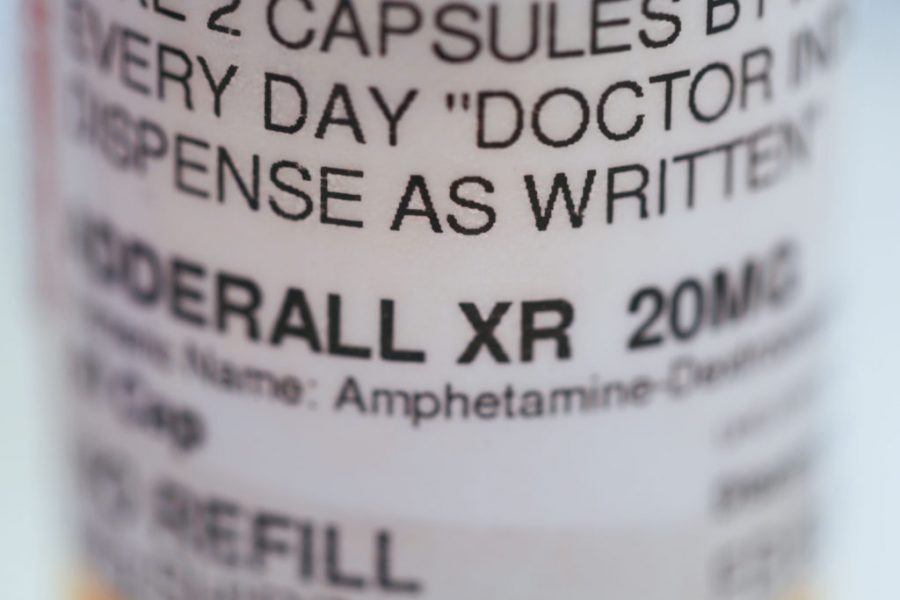When asked, almost any student at the University of Utah would say that their education is difficult and stressful. Even the best of students falter under the heavy weight of assignments and deadlines.
Some students have discovered their own ways of getting work done in a timely manner, turning to what are sometimes called “smart pills.” These are methylphenidates and amphetamines, which include the drugs Adderall, Ritalin and Concerta. Adderall is the most popular of the set due to its level of efficacy, comparative lack of side-effects and propensity for causing weight loss and diet changes.
Adderall is a central nervous system stimulant which is occasionally used to treat narcolepsy, but more typically is prescribed to those diagnosed with attention-deficit hyperactivity disorder (ADHD). Persons with ADHD experience a severe discrepancy in attention, impulsivity and hyperactivity.
To combat ADHD, Adderall increases dopamine outputs, which increases motivation and attentiveness. It also balances out other chemicals in the brain to decrease symptoms of impulsivity and hyperactivity.
ADHD is believed to affect between two to five percent of the United States population, according to the National Institute of Mental Health. A recent article in the Stanford Journal of Neuroscience pointed out that although America has the same number of diagnoses of ADHD as its international counterparts, the U.S. dominates 83 to 90 percent of global ADHD medication sales. This suggests that there is a significant number of people without ADHD using and reselling medication.
A student at the U who asked to remain anonymous said, “I have a prescription for Adderall from two doctors, neither of which knows about the other.”
The illegal usage of Adderall and other ADHD medications is common in a university setting. In individuals without ADHD, Adderall functions as a stimulant that causes a massive dopamine increase.
“I use Adderall a few times a semester,” said the anonymous student. “I don’t want to use it a lot because I know that it’s easy to get hooked on, but if I need to pull an all-nighter or quickly finish a really difficult project, it does the job.”
A recent study by Rutgers University found that an estimated 6.4 percent of full-time college students use Adderall to improve their study habits.
“Because people have different metabolism, one pill, or dose of ADHD/ADD medication can be harmful to one individual, while another individual could take two pills of Adderall and would not feel any effects,” the Rutger’s study explained. “For safety reasons then, the Food and Drug Administration enforces that medications from ADHD/ADD should be prescribed by a doctor.”
Another problem that tends to come into play with Adderall use, aside from inaccurate dosages, is a lack of knowledge about the potential side effects of the drug. Most users obtain the drug without any labels. According to the Rutgers study, “Amphetamine, a substance found in Adderall, is known to cause drug dependence if intake of Adderall is prolonged. Additionally, insomnia, anxiety and irritability, hallucinations, symptoms of depression, seizures, high blood pressure and rapid heart are all the few but extremely dangerous side effects of abusing Adderall.”
Students at the U and universities around the country use “study pills” to get work done, but it’s important to remember that the pills don’t raise intelligence.
c.macdonald@dailyutahchronicle.com


